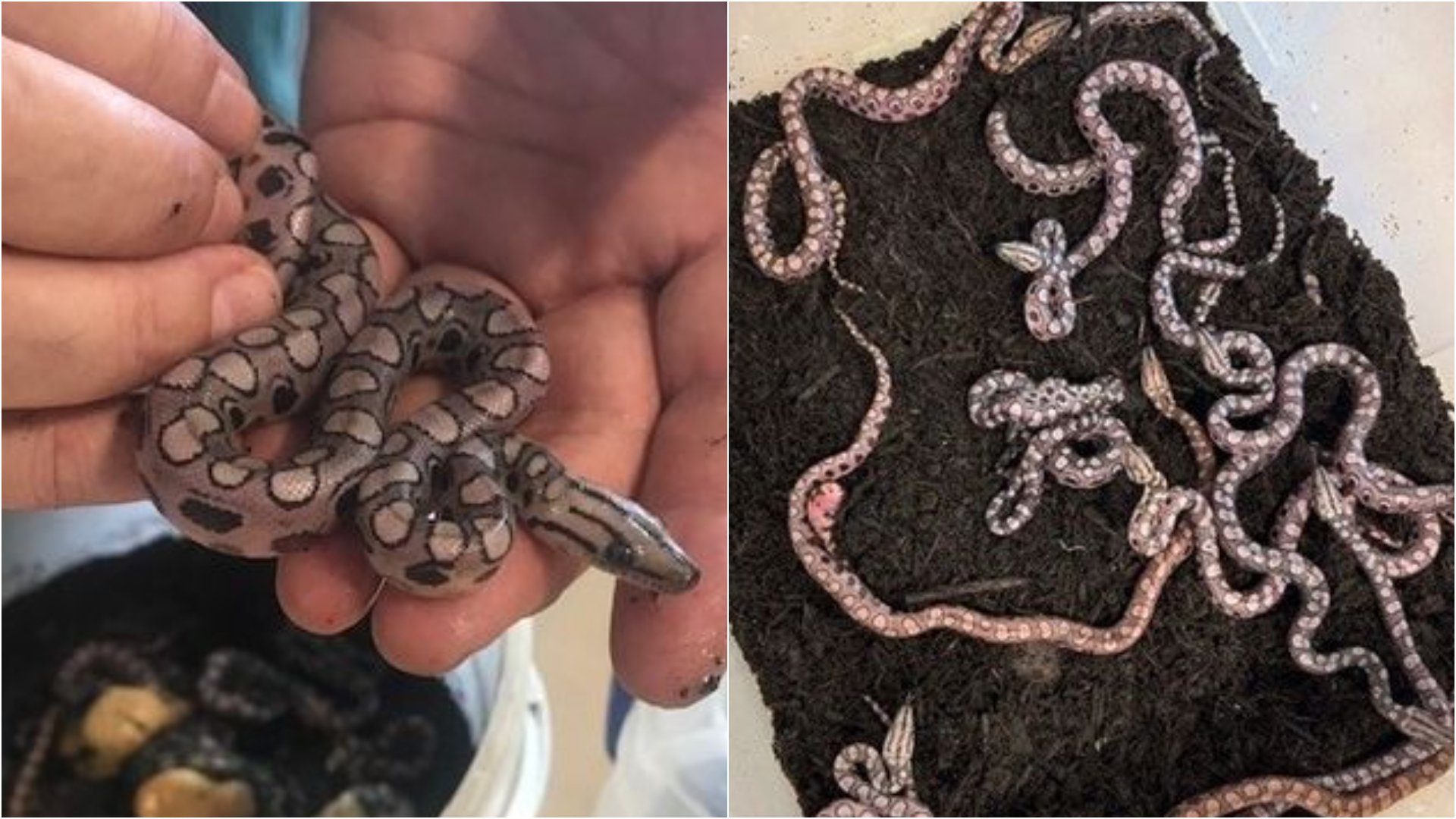'Ronaldo had been looking slightly fatter than usual': Snake thought to be male has 14 babies in rare 'virgin birth'
A captive Brazilian rainbow boa initially declared male by a vet gives birth to 14 snakelets in a rare case of parthenogenesis at a U.K. college.

A captive snake thought to be male recently gave birth to 14 babies after almost a decade in isolation, its keepers say.
The 13-year-old Brazilian rainbow boa (Epicrates cenchria), named Ronaldo, has not been in contact with any other snake for at least nine years. Ronaldo was a rescue snake that a vet had previously identified as a male.
"One of the students discovered them during a routine vivarium check," Amanda McLeod, an animal care technician at the City of Portsmouth College in the U.K., where the snake is kept, said in a statement Monday (June 24). "At first we thought she must have been mistaken. We couldn't believe our eyes!"
This is the third "virgin birth" recorded in a Brazilian rainbow boa.
"Ronaldo had been looking slightly fatter than usual, like he'd eaten a big meal, but we never thought for a moment that he, or should we say she, was pregnant," Pete Quinlan, a reptile specialist at the college, said in the statement.
Related: 8 animals that have virgin births
Virgin birth, known as parthenogenesis, is a type of asexual reproduction that takes place in a species that normally reproduces sexually. While rare, it's been recorded in several species in captivity, including birds, sharks, lizards, other snake species and a crocodile.
Sign up for the Live Science daily newsletter now
Get the world’s most fascinating discoveries delivered straight to your inbox.
In parthenogenesis, eggs mature without fertilization by sperm. In some cases, eggs can be fertilized by a "polar body," which is a small cell that forms in the reproductive tract at the same time as an egg cell.
There are several different ways parthenogenesis can occur, and it is unclear what mechanism triggered Ronaldo to produce offspring.
"Effectively the babies are clones of their mother although their markings are all slightly different," Quinlan said.
Ronaldo was brought to City of Portsmouth College after being rehomed there by an animal welfare charity. The snakelets are now being assessed to determine their sex and placed in new enclosures. Once large enough, they will be rehomed, according to the statement.

Hannah Osborne is the planet Earth and animals editor at Live Science. Prior to Live Science, she worked for several years at Newsweek as the science editor. Before this she was science editor at International Business Times U.K. Hannah holds a master's in journalism from Goldsmith's, University of London.










